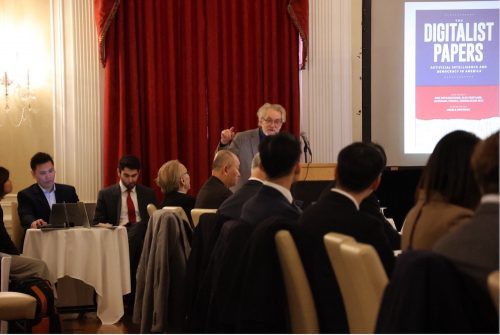Most of the public discourse around artificial intelligence (AI) policy focuses on one of two perspectives: how the government can support AI innovation, and how the government can deter its harmful or negligent use. Yet there can also be a role for government in making it easier to use AI beneficially—in this niche, the National Science Foundation (NSF) has found a way to contribute. Through a grant-making program called Fairness in Artificial Intelligence (FAI), the NSF is providing $20 million in funding to researchers working on difficult ethical problems in AI. The program, a collaboration with Amazon, has now funded 21 projects in its first two years, with an open call for applications in its third and final year. This is an important endeavor, furthering a trend of federal support for the responsible advancement of technology, and the NSF should continue this important line of funding for ethical AI.
The FAI program is specifically oriented towards the ethical principle of “fairness”—more on this choice in a moment. While this may seem unusual, the program is a continuation of prior government funded research into the moral implications and consequences of technology. Starting in the 1970’s, the federal government started actively shaping bioethics research in response to public outcry following the AP’s reporting on the Tuskegee Syphilis Study. While the original efforts may have been reactionary, they precipitated decades of work towards improving the biomedical sciences. Launched alongside the Human Genome Project in 1990, there was an extensive line of research oriented towards the ethical, legal, and social implications of genomics. Starting in 2018, the NSF funded 21 exploratory grants on the impact of AI on Society, a precursor to the current FAI program. Today, it’s possible to draw a rough trend line through these endeavors, in which the government is becoming more concerned with first pure science, then the ethics of the scientific process, and now the ethical outcomes of the science itself. This is a positive development, and one worth encouraging.
The original article was posted at Brookings Institution.
To support for AI technology and development for social impact, Michael Dukakis Institute for Leadership and Innovation (MDI) and Artificial Intelligence World Society (AIWS.net) has developed AIWS Ethics and Practice Index to measure the ethical values and help people achieve well-being and happiness, as well as solve important issues, such as SDGs. Regarding to AI Ethics, AI World Society (AIWS.net) initiated and promoted to design AIWS Ethics framework within four components including transparency, regulation, promotion and implementation for constructive use of AI. In this effort, Michael Dukakis Institute for Leadership and Innovation (MDI) invites participation and collaboration with think tanks, universities, non-profits, firms, and other entities that share its commitment to the constructive and development of full-scale AI for world society.










